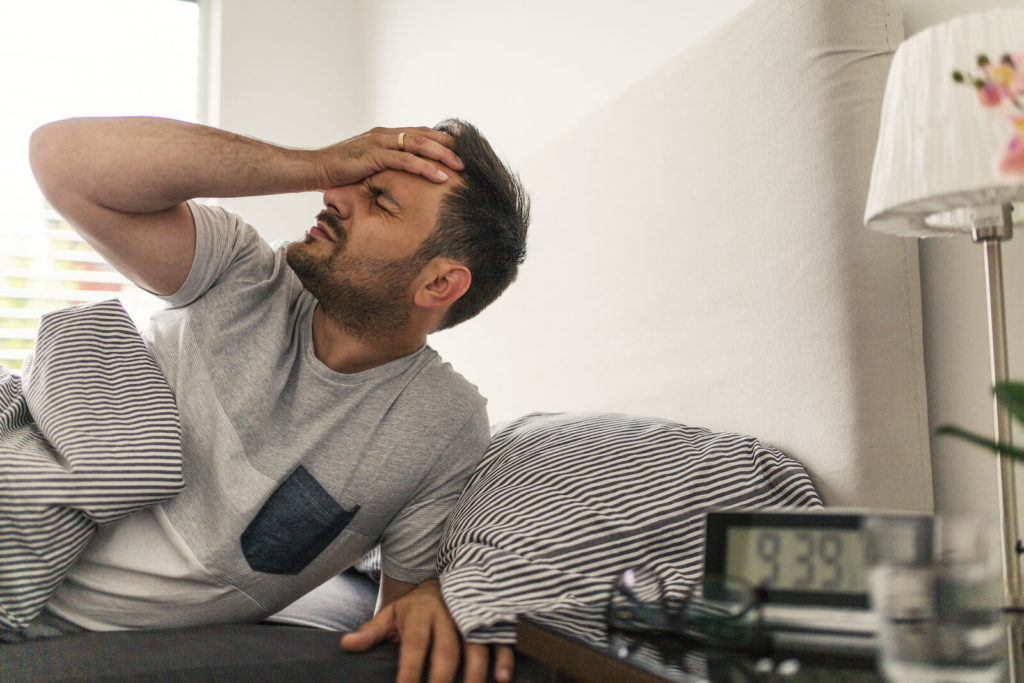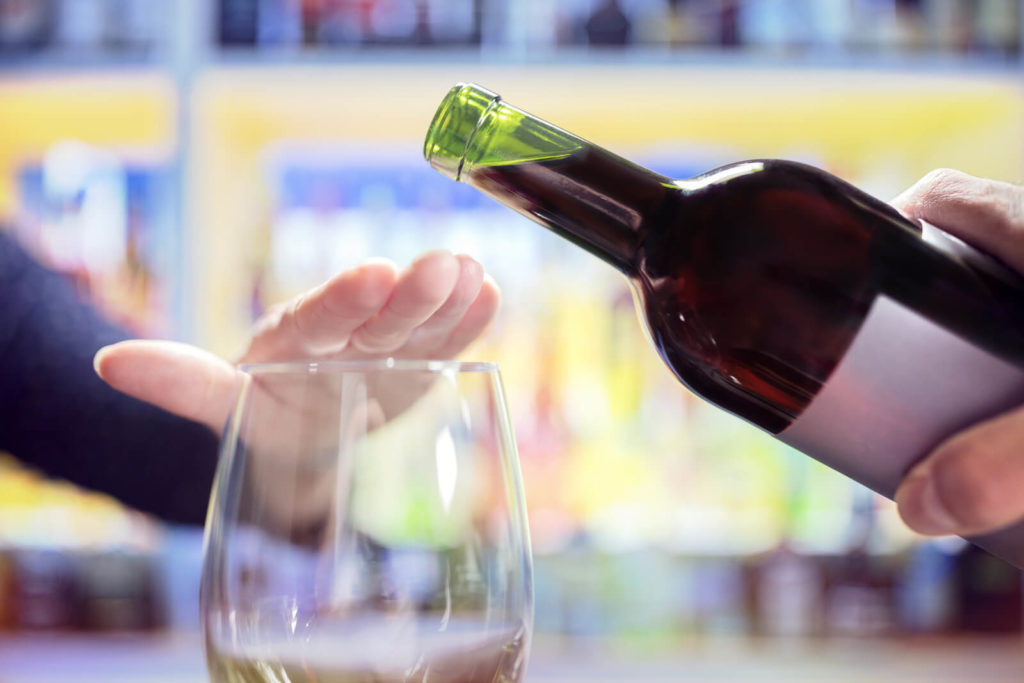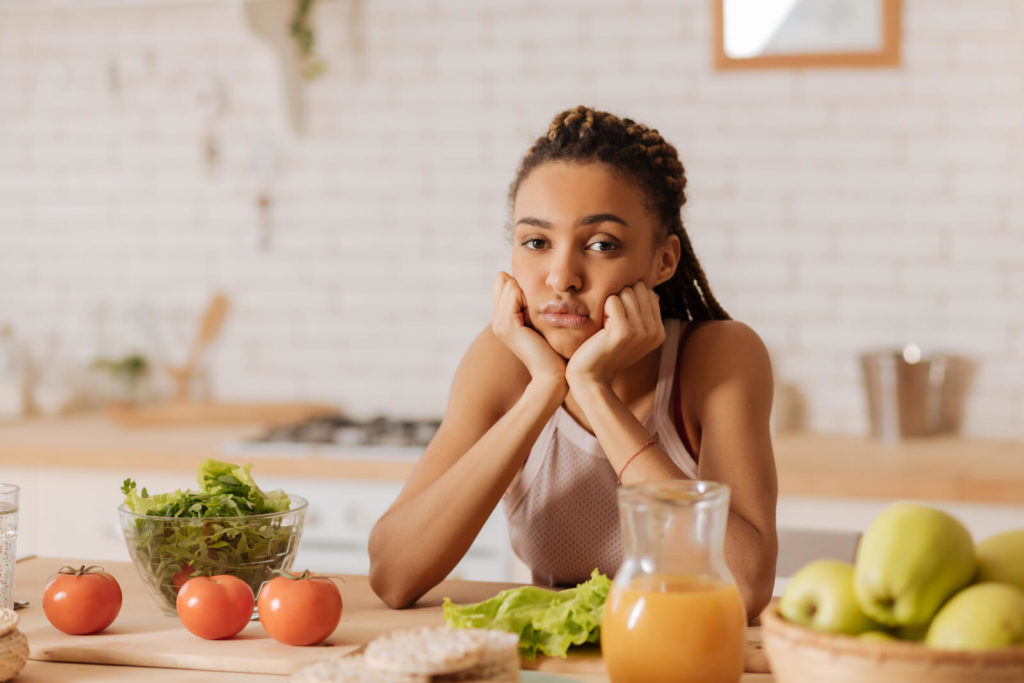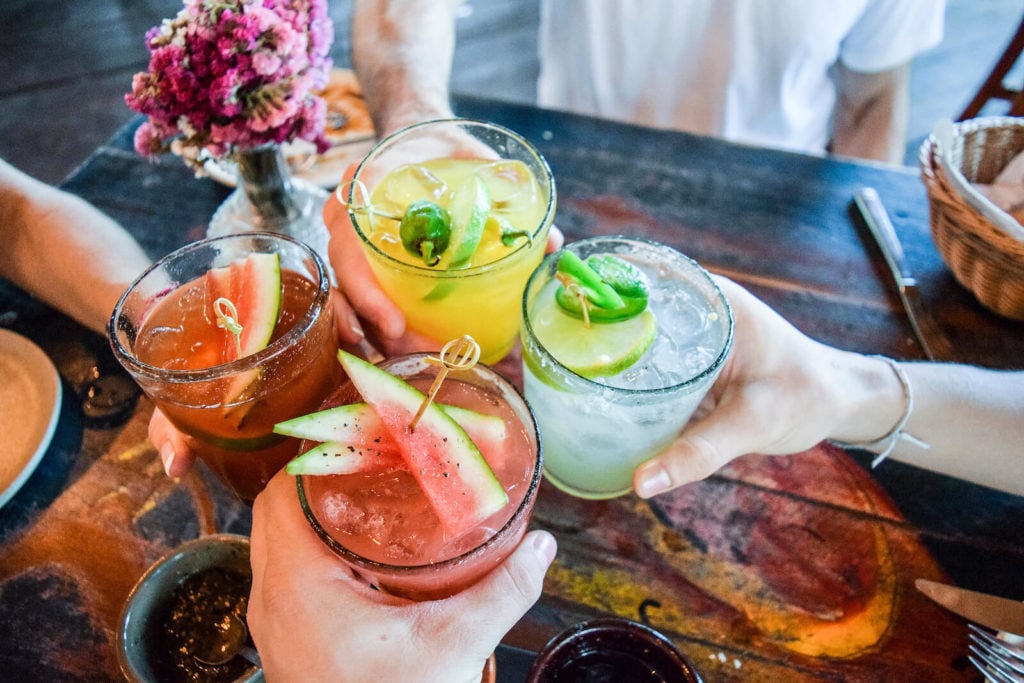How to Prevent a Hangover Beyond Hydration
A Deep Dive Into the Research on Hangover Remedies
- What Happens When You Get a Hangover|
- The Science of Hangover Preventions|
- Sleep|
- Nutrition|
- Time Heals All Hangovers|
- Hangover Prevention Myths|
- The Bottom Line|
- There is no true “hangover cure,” but some strategies like sleeping more than seven hours post-drinking and nutrients like zinc and nicotinic acid may help reduce hangover symptoms.
- Hangover cure supplements often have nutrients like vitamins B and C that support the liver, so while they aren’t proven to cure a hangover, they may be worth a shot. Just don’t expect any miracles!
- For most people the order or timing of drinking alcohol actually doesn’t matter – it’s simply the quantity of alcohol that determines the severity of hangover symptoms.
- However, you may find that you react to different types of alcohol in different ways. Always listen to your body.
- Ultimately, time is the only true cure for a hangover.

The only surefire way to prevent a hangover is to avoid drinking or to drink less – but for most of us, a night comes up every once in a while that involves a few alcoholic beverages. We wanted to know what science has to say about preventing a hangover, so we went on a research deep dive to come up with as many answers as we could.
While there hasn’t been much high quality evidence to support any hangover preventions or cures, a few strategies might help to lessen the severity, including getting more than seven hours of sleep and eating foods that are rich in zinc and nicotinic acid (examples of these are below).
A few small studies have also pointed to the possible benefits of Korean pear juice and red ginseng specifically for lessening the cognitive symptoms associated with a hangover, including poor concentration and memory.
When it comes to some of the more popular “hangover prevention” supplements on the market, including n-acetylcysteine (NAC), caffeine, and vitamin B, studies haven’t yet shown any effect. Still, these remedies are generally safe, inexpensive, and may offer other health benefits, so they may be worth a try (just don’t get your hopes up about eliminating the hangover altogether).
In this article, we’ll explore these strategies and everything else we know so far about how to prevent a hangover.

What the Science Says About How to Prevent a Hangover
There are dozens of reported strategies on how to avoid a hangover, but the only strategies known to truly prevent hangovers are only drinking moderately or not drinking at all.
Otherwise, remedies can only reduce or improve hangover symptoms. No treatment has been shown to completely resolve those symptoms or prevent hangovers altogether.
This table outlines just some of the remedies available for hangovers and their effects:
| Remedy | Effect on Hangovers |
| Loxoprofen sodium (NSAID) | Improved headache, but NSAIDs can damage the stomach lining (as does alcohol), so they’re best not used with alcohol [1] |
| Probiotics (lactobacillus and bifidobacterium species) | NO effect [2] |
| Caffeinated alcohol | NO effect [3] |
| N-acetylcysteine (NAC) | NO effect [4] |
| Siberian ginseng | Improved fatigue, headache, nausea, stomachache, dizziness [5] |
| Korean pear juice | Improved concentration, sleepiness, dizziness [5, 6] |
| Red ginseng | Improved stomachache, dehydration, concentration, memory [5, 7] |
| Dandelion juice | Improved digestive, muscular, eye, skin, and nervous system problems [5] |
Although some of these studies showed a slight improvement in hangover symptoms, they were conducted in small groups and most of the participants were men. More research would be needed with larger groups and an equal number of men and women to truly discover whether these could be classified as “hangover remedies.” Still, these initial studies indicate that they may be promising candidates for future research.
Sleep Is Crucial for Beating a Hangover
If you’ve had a long night of drinking, getting over seven hours of quality sleep may help reduce your hangover symptoms the next day.
An observational study looked at the relationship between total sleep time and the duration and severity of hangovers. The study surveyed 578 university students (60% female), asking about their latest hangovers.
- Total sleep time was significantly correlated with alcohol consumption, hangover severity, and hangover duration.
- People who slept more than seven hours had consumed significantly more alcohol and had longer hangovers, but their hangovers were less severe than those who slept less than seven hours.
Overall, reduced total sleep time was associated with more severe hangovers. If possible, getting more than seven hours of sleep may reduce the intensity of a hangover but not its length. One challenge to getting more sleep after heavy drinking is that alcohol disrupts sleep [8].
Nutrition for Hangovers
Another common idea is that eating a meal or a snack before, during, or after drinking will lessen or prevent a hangover. Scientifically speaking, the jury is still out on food intake and hangovers. But some research does link the nutrients zinc and nicotinic acid to reduced hangover severity.
An observational study sought to find out whether dietary zinc and nicotinic acid, which are both key components of alcohol metabolism, could help with hangover symptoms. The study split a group of 23 healthy men and women into those who get hangovers and those who don’t. Both groups recorded their food intake for one alcohol-free day and one day with alcohol consumption. Both groups had similar nutrient intakes, but for the hangover-sensitive drinkers:
- Higher dietary zinc and nicotinic acid intake was associated with less severe hangovers.
- Higher dietary zinc in particular was associated with less severe vomiting.
- No other nutrients, such as fats, fibers, or carbohydrates, were associated with hangover severity.
The study does not specify the timing of food intake, but eating your zinc and nicotinic acid-rich foods may help reduce a hangover.
Zinc-rich foods include:
- Meat
- Shellfish
- Legumes
Nicotinic acid-rich foods include:
- Meat
- Fish
- Poultry
- Avocados
- Peanuts
- Whole grains
- Mushrooms

Time Heals All Hangovers
In the end, the only way to completely resolve a hangover is to wait it out. Your body needs time to break down and clear the alcohol and its byproducts, restore immune and cognitive function, rehydrate, and so on.
In the meantime, supporting liver detoxification with popular hangover remedies like vitamins B and C, NAC, antioxidants, milk thistle, and electrolytes won’t hurt, so it’s worth a try to reduce hangover severity. Drinking water to support hydration is essential as well. Of course, we don’t recommend drinking heavily on a regular basis.
Myths About Hangover Prevention and Cures
There are dozens of myths about hangover cures and prevention. We’ve already mentioned one of the most common ones, but here’s a list of some of the other most common myths about alcohol and hangover cures.
| Myth | Fact |
| Drinking coffee or taking a shower can prevent or cure a hangover. | No. The only hangover cure is time, and there are no methods that have been shown to prevent a hangover [9]. |
| The order of drinks (as in the expression, “beer before liquor, never sicker”) can affect a hangover. | No. The amount of alcohol, not the order or types, will determine the severity of a hangover [9]. |
| Drinking alcohol the morning after heavy drinking can help me avoid a hangover. (This is also called “the hair of the dog that bit you.”) | No. This practice could temporarily minimize some symptoms, but it can also add to and lengthen the fatigue and other hangover symptoms [9]. Plus, it may lead to excessive drinking and alcoholism [10]. |
| There are remedies that can cure my hangover. | Although many products claim to relieve hangovers, none has been scientifically proven as effective. The only proven remedy is time [9]. |
| Taking over-the-counter pain relievers (like acetaminophen) before going to bed will minimize my hangover. | Combining alcohol and acetaminophen can be toxic to your liver. Other pain relievers, such as the non-steroidal anti-inflammatory drugs aspirin and ibuprofen, can cause the stomach to release acid and irritate the stomach lining. Alcohol does this, too, so combining NSAIDs with alcohol can double the damage to your stomach lining [9]. |
| High-electrolyte beverages like sports drinks, coconut water, and Pedialyte, or even IV electrolyte infusions, can reduce the severity of my hangover. | Research hasn’t found an association between the degree of electrolyte imbalance caused by dehydration while drinking and hangover severity. Research also hasn’t found that adding electrolytes improves hangovers. Again, with time, the body will restore its electrolyte balance once it has detoxified from drinking too much [9]. |
What Happens When You Get a Hangover?

To understand whether certain advice about how to prevent a hangover is reasonable, it’s good to get an idea of what actually causes hangover symptoms.
Hangovers are caused by drinking alcohol, especially in high amounts, causing the liver to metabolize (break down) the alcohol into some highly toxic byproducts, like acetaldehyde [11, 12]. This is then processed again into (still toxic) acetate and water. When the liver is working hard to break down a significant amount of alcohol, you get a significant amount of these toxic byproducts, which partially cause hangover symptoms. This also suggests why hangovers worsen as your blood alcohol level reaches zero – as the alcohol is metabolized, more toxins are released until there is no alcohol left.
Substances called congeners may also contribute to hangovers. These are byproducts produced in the distillation and fermentation process of making the alcohol. Congeners are highest in red wine and distilled liquor, such as brandy, and they are lowest in clear liquor, such as vodka. Types of congeners include [11]:
- Amines
- Amides
- Acetones
- Acetaldehyde
- Polyphenols
- Histamine
- Ethanol
- Methanol
- Fusel oil
- Esters
- Tannins
We don’t know exactly how most of these compounds contribute to hangovers, but some can be more severe than others. People can also be sensitive to them in different ways. For example, those with histamine intolerance or sensitivity may find that drinking red wine gives them a worse hangover than a clear alcohol like vodka or white tequila, since red wine is high in histamine.
Does the Order of Alcohol Consumption Matter?
You might know the phrase, “Beer before wine and you’ll feel fine” or some other version of it. Basically, the idea is that drinking beer before wine will prevent a hangover, but drinking wine before beer will make a hangover worse.
Interestingly, a well-designed randomized clinical trial divided 90 adults into group 1 (beer before wine), group 2 (wine before beer), or a control group (beer or wine only). They found that:
- None of the groups differed in terms of hangover intensity.
- The strongest predictors of hangover intensity were overall drunkenness and vomiting.
Overall, the study dispelled the myth that the order in which you consume beer and wine has any effect on hangover intensity. Instead, how drunk people were and whether they drank enough to vomit (therefore expelling some of the alcohol consumed) accurately predicted hangover severity [13].
But our experiences are individual, and you may find that you feel worse the next day when you drink different types of alcohol, whether it’s drinks with more sugar or those that contain ingredients you’re sensitive to.
For example, most beer contains gluten, so if you have a gluten sensitivity, you may experience symptoms like brain fog and bloating and a worse hangover the next day to boot. Always listen to your body.
Hangover Remedies Remain Unproven (But They Likely Won’t Hurt)
It might not be the answer that most people want to hear, but the only absolutely certain answer on how to prevent a hangover is to drink moderately or not at all. Except for those few who are genetically exempt from more severe hangovers, heavy drinking unfortunately leads to being hungover the next morning for most people.
While trying natural hangover remedies like red ginseng or NAC won’t hurt you (and may provide some missing nutrients and antioxidants that your body craves), they are unlikely to “cure” your hangover. At the most, they may reduce the severity of some hangover symptoms until time can handle the rest.
As with any health recommendation, how you handle alcohol consumption comes down to knowing how your body feels after drinking and assessing what your personal limits are. If you want to avoid a hangover, be cognizant of those limits and keep your alcohol consumption low.
For more personalized guidance on your health, reach out to our functional medicine center.
Dr. Michael Ruscio is a DC, natural health provider, researcher, and clinician. He serves as an Adjunct Professor at the University of Bridgeport and has published numerous papers in scientific journals as well as the book Healthy Gut, Healthy You. He also founded the Ruscio Institute of Functional Health, where he helps patients with a wide range of GI conditions and serves as the Head of Research.➕ References
- Hara M, Hayashi K, Kitamura T, Honda M, Tamaki M. A nationwide randomized, double-blind, placebo-controlled physicians’ trial of loxoprofen for the treatment of fatigue, headache, and nausea after hangovers. Alcohol. 2020 May;84:21–5. DOI: 10.1016/j.alcohol.2019.10.006. PMID: 31689482.
- Jung S-J, Hwang J-H, Park E-O, Lee S-O, Chung Y-J, Chung M-J, et al. Regulation of alcohol and acetaldehyde metabolism by a mixture of lactobacillus and bifidobacterium species in human. Nutrients. 2021 May 30;13(6). DOI: 10.3390/nu13061875. PMID: 34070917. PMCID: PMC8228388.
- Rohsenow DJ, Howland J, Alvarez L, Nelson K, Langlois B, Verster JC, et al. Effects of caffeinated vs. non-caffeinated alcoholic beverage on next-day hangover incidence and severity, perceived sleep quality, and alertness. Addict Behav. 2014 Jan;39(1):329–32. DOI: 10.1016/j.addbeh.2013.09.008. PMID: 24090620. PMCID: PMC3864634.
- Coppersmith V, Hudgins S, Stoltzfus J, Stankewicz H. The use of N-acetylcysteine in the prevention of hangover: a randomized trial. Sci Rep. 2021 Jun 28;11(1):13397. DOI: 10.1038/s41598-021-92676-0. PMID: 34183702. PMCID: PMC8238992.
- Jayawardena R, Thejani T, Ranasinghe P, Fernando D, Verster JC. Interventions for treatment and/or prevention of alcohol hangover: Systematic review. Hum Psychopharmacol. 2017 May 31;32(5). DOI: 10.1002/hup.2600. PMID: 28568743.
- Lee H-S, Isse T, Kawamoto T, Baik HW, Park JY, Yang M. Effect of Korean pear (Pyruspyrifolia cv. Shingo) juice on hangover severity following alcohol consumption. Food Chem Toxicol. 2013 Aug;58:101–6. DOI: 10.1016/j.fct.2013.04.007. PMID: 23587660.
- Lee M-H, Kwak JH, Jeon G, Lee J-W, Seo J-H, Lee H-S, et al. Red ginseng relieves the effects of alcohol consumption and hangover symptoms in healthy men: a randomized crossover study. Food Funct. 2014 Mar;5(3):528–34. DOI: 10.1039/c3fo60481k. PMID: 24458173.
- van Schrojenstein Lantman M, Mackus M, Roth T, Verster JC. Total sleep time, alcohol consumption, and the duration and severity of alcohol hangover. Nat Sci Sleep. 2017 Jun 29;9:181–6. DOI: 10.2147/NSS.S136467. PMID: 28721110. PMCID: PMC5499928.
- Hangovers | National Institute on Alcohol Abuse and Alcoholism (NIAAA) [Internet]. Available from: https://www.niaaa.nih.gov/publications/brochures-and-fact-sheets/hangovers
- Verster JC. The “hair of the dog”: a useful hangover remedy or a predictor of future problem drinking? Curr Drug Abuse Rev. 2009 Jan;2(1):1–4. DOI: 10.2174/1874473710902010001. PMID: 19630732.
- Palmer E, Tyacke R, Sastre M, Lingford-Hughes A, Nutt D, Ward RJ. Alcohol hangover: underlying biochemical, inflammatory and neurochemical mechanisms. Alcohol Alcohol. 2019 May 1;54(3):196–203. DOI: 10.1093/alcalc/agz016. PMID: 30916313.
- Verster JC, Vermeulen SA, Loo AJAE van de, Balikji S, Kraneveld AD, Garssen J, et al. Dietary nutrient intake, alcohol metabolism, and hangover severity. J Clin Med. 2019 Aug 27;8(9). DOI: 10.3390/jcm8091316. PMID: 31461972. PMCID: PMC6780234.
- Köchling J, Geis B, Wirth S, Hensel KO. Grape or grain but never the twain? A randomized controlled multiarm matched-triplet crossover trial of beer and wine. Am J Clin Nutr. 2019 Feb 1;109(2):345–52. DOI: 10.1093/ajcn/nqy309. PMID: 30753321. PMCID: PMC6410559.
Discussion
I care about answering your questions and sharing my knowledge with you. Leave a comment or connect with me on social media asking any health question you may have and I just might incorporate it into our next listener questions podcast episode just for you!